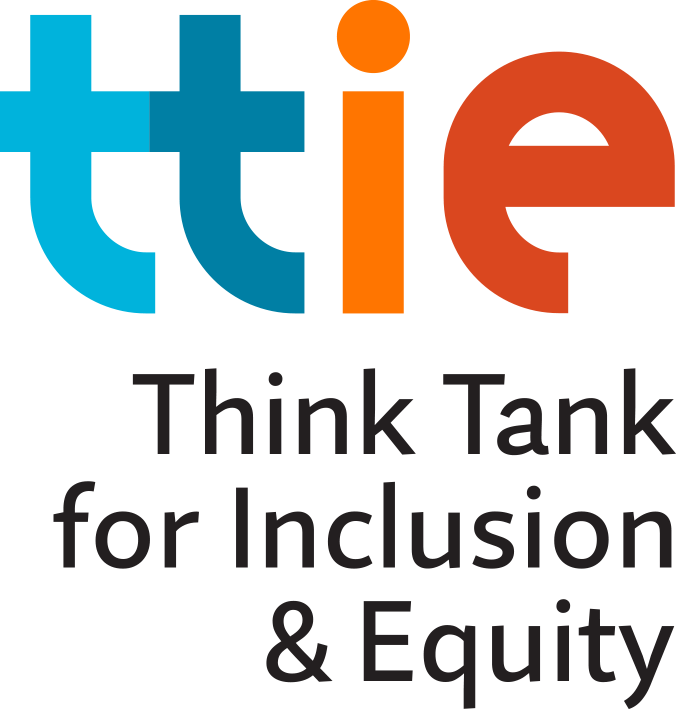A Call to Action: Black Lives Matter.
The Think Tank for Inclusion and Equity (TTIE), an intersectional group of working television writers, is dedicated to the advancement of underrepresented writers and the promotion of authentic storytelling for underrepresented communities. We are comprised of BIPOC, LGBTQIA+, Disabled, and Women writers spanning staff writers to showrunners. As such, we explicitly declare that we are an anti-racist organization, and we emphatically proclaim that BLACK LIVES MATTER.
As television professionals, we must take responsibility for the harm that damaging TV tropes have done to the Black community. One of the main reasons why much of America -- law enforcement in particular -- systematically racially profiles Black people is that television and motion pictures perpetuate problematic imagery and exclusionary messages. Hollywood has a long history of centering whiteness in all facets of the industry, maintaining a culture of white supremacy on both sides of the camera. We need to change how we do business.
Our recently released report, “Behind the Scenes: The State of Inclusion and Equity in TV Writing” features a number of recommendations for industry-wide progress toward inclusion and equity. We break down those recommendations further here, keeping Black writers and Black stories at the forefront. Showrunners, creative executives, non-writing producers, business affairs attorneys, talent representatives, writers on staff in writers rooms -- we call on you:
We call on you to prioritize hiring Black writers, not only when creating Black characters and crafting Black stories, but for all stories. Black people live in, lift up, and shape every sector of American life. We call on you to not only recruit Black writers at the lower levels to satisfy inclusion requirements, but to truly listen to Black voices. They contain the rich, nuanced stories of a vastly underrepresented (and often misrepresented) community, and they’ve observed all facets of American society with clear eyes and a unique perspective.
We call on you to support the career advancement and equitable pay of Black writers. The recently released WGA Inclusion Report Card shows BIPOC writers entering writers rooms at near-parity levels, but steadily falling away or repeating levels as they should be climbing the ranks. (The Report Card does not separate Black writers from other writers of color.) The many reasons why this is happening are detailed in TTIE’s report.
We call on you to identify and eliminate practices in your workplace that create roadblocks for advancement. The dynamics and culture of our workplaces matter. Whether it's intentional or not, Black creatives routinely find their voices stifled, silenced, and dismissed. In your workplace, are dissenting voices squelched with constant interruptions or insensitive jokes? If so, point out those destructive patterns. The loudest voices in any room can take up the most space. Don’t let them. If your workplace has fostered a political culture that silences people, start speaking up. Identify and address workplace behaviors that are hostile toward Black writers, executives, producers, and support staff.
We call on you to lift up the voices of Black Creative Executives.Weigh their opinions heavily in the acquisition and greenlighting of stories. When they are the only executive responding positively to a piece of material -- listen to their reasoning. Let the quality of the story and the talent of the writer take the lead, especially when you don’t recognize yourself in the story.
We call on you to sit in the discomfort of stories you may not recognize. Make shows that elevate Black narratives beyond the harmful stereotypes that have helped pull apart American society. Give Black creators the power to run their own shows instead of filtering their voices through white gatekeepers. If you are a gatekeeper, step back and ask yourself -- is yours the voice that should be shaping this particular story?
We call on you to reach out for help. Because American education is Eurocentric and exclusionary, many of us need to admit that we don’t know what we don’t know. That admission is an important step toward meaningful conversation. TTIE partner organization Color of Change has resources for reference and is available to speak to your writers room to help you tell better Black stories. TTIE partners with a number of organizations that can serve as sounding boards to underscore and elevate stories from underrepresented communities and complement the experiences of your underrepresented writers.
And finally, we call on you to seize this moment as an opportunity to change the way you and your organization do business. It will require constant commitment and daily practice to change the way we tell stories and the way we do business. Do not let your discomfort be a barrier to transformation.
TTIE aims to steer the culture of the television industry towards a safer, more inclusive, more equitable reality. We appreciate all who are standing in that fight with us, and we welcome those who want to join us now.
